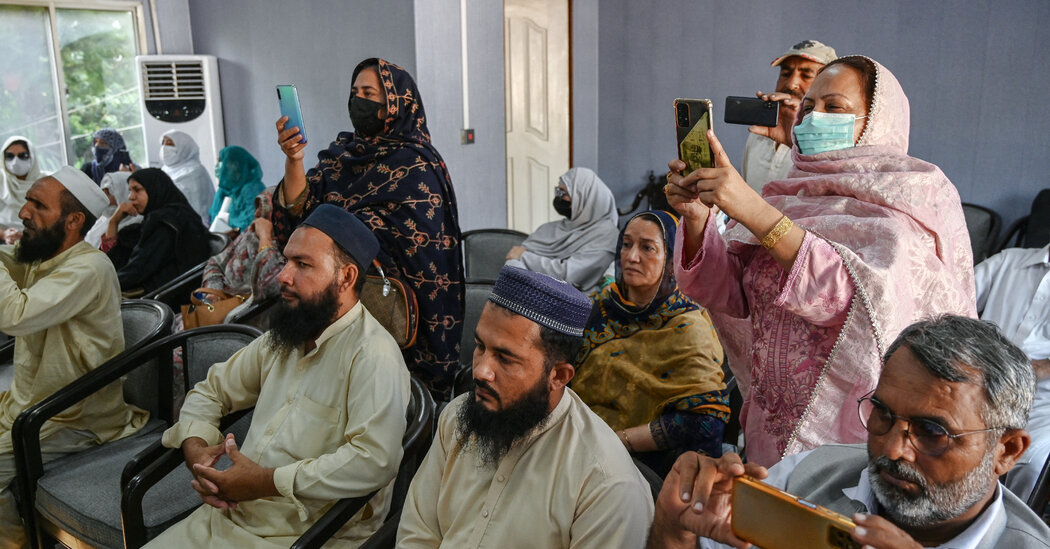It is to many Pakistanis an unspeakable crime, so much so that evidence is not always required to secure a conviction. Violent rallies spring up at just rumors that it has happened. Vigilantes have hunted down the accused, and they are praised as heroes for doing it.
The crime is blaspheming Islam, and in Pakistan, it can carry a death sentence, although the country has not executed anyone for it.
But identifying what constitutes blasphemy can be nearly impossible in a society that represses conversation on the topic, outside of outright condemnation. Accusations of blasphemy have at times incited murderous mobs. Politicians and lawyers who challenged the blasphemy laws have been killed.
In 2023, Pakistan made punishments more severe for violations of its blasphemy laws, early versions of which were introduced under British rule. Arrests have since skyrocketed — from a few dozen per year to hundreds — especially on charges of blaspheming Islam on the internet.
Many of the accused say they were entrapped by bad actors online who sought to extort them or to inflate the number of blasphemy arrests. Human rights experts say that pointing to a rising tide of blasphemy — manufactured or not — is a sure way for Islamist groups to drum up public support and to attract funding under the pretext of defending religious sanctity.
Interviews with families of the accused, legal experts, rights advocates and some officials, as well as reviews of government reports, suggest a pattern of abuse. They say strict blasphemy laws are being misused to target vulnerable people.
Thank you for your patience while we verify access. If you are in Reader mode please exit and log into your Times account, or subscribe for all of The Times.
Thank you for your patience while we verify access.
Already a subscriber? Log in.
Want all of The Times? Subscribe.
The post How Online Chats Are Leading to Imprisonment for Blasphemy appeared first on New York Times.




